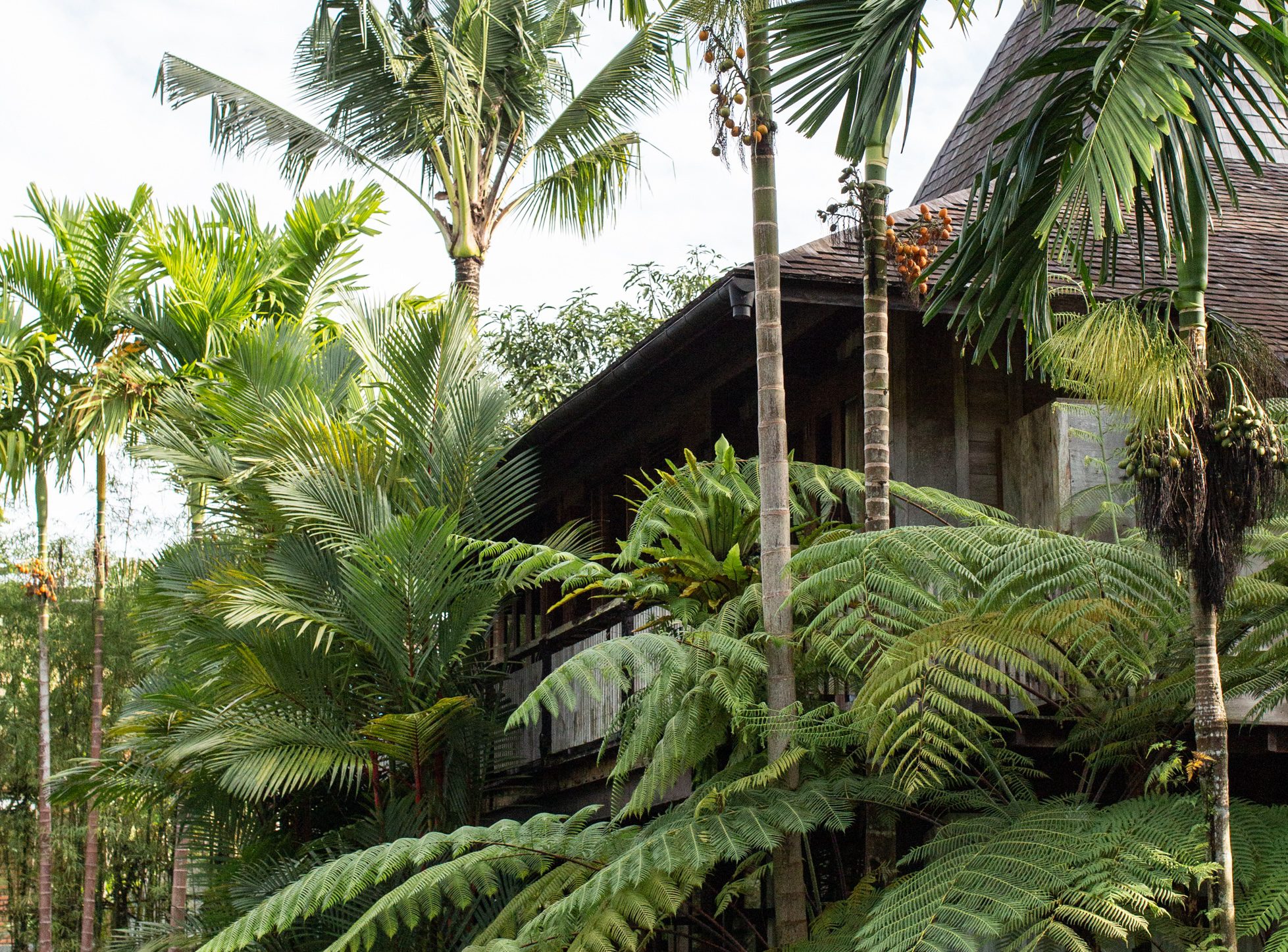Asia Holiday Rentals
This private estate in Bali offers a lush sanctuary for ‘slow travel’

At Rumah Hujan in Ubud, guests find themselves immersed in nature and surrounded by architectural beauty

Situated amongst lush greenery in the heart of Ubud, Bali, Rumah Hujan is a product of its environment. Designed by Studio Jencquel founder Maximilian Jencquel – whose interior design portfolio includes notable establishments such as the Lost Lindeberg hotel, Four Seasons and private estate Hartland – this private estate comprises two distinct residences: Rumah Hujan House and Rumah Senja. Each residence features three bedrooms and a private pool, and can be rented individually or together, making Rumah Hujan suitable as a romantic retreat or a spacious family sanctuary.
Now owned by a family who divides their time between Bali and Europe, the property has only recently become available as a holiday rental, giving visitors to Bali the chance to experience the beauty of Rumah Hujan first-hand.
Constructed with Bali’s tropical climate in mind, the aesthetic of Rumah Hujan seamlessly integrates a biophilic design. It is a place where residents can enjoy the surrounding environment in the complete privacy of a luxurious retreat.
“Each of the primary living spaces, and indeed the entire estate, has been meticulously crafted to embrace and connect you with the encompassing nature and the lush jungle fauna,” says Maximilian. “It felt imperative to harmonise with the natural elements, encompassing the diverse array of plants and the breathtaking views.”
The design eliminates traditional walls, with an open-air flow allowing residents to engage with natural beauty at every angle. Further facilitating a connection with the outdoors, each bedroom is strategically positioned to face the sunrise, maximising panoramic views.
This design combines the classical interior design training Maximilian undertook in Paris with the skills and inspirations he has gained from living in Bali. Jencquel spent his childhood adventuring in the jungles of Venezuela, which nurtured a profound love for nature and the outdoors. This early connection to the natural world inspired Jencquel to bring his design talents to Bali, where he formed relationships with local craftsmen, builders and designers.
“My family moved to Rumah Hujan while it was being built,” says Maximilian. “My wife and I actively participated in every aspect of the construction process, meticulously placing each piece of wood and stone, imprinting our personal touch deep within it.”
With the evolving trend that sees travellers seeking more privacy and embracing ‘slow travel’, Rumah Hujan is “a home, not a hotel,” says Maximilian, “where guests set the pace, moving around the house, and [decide] how they spend their days.”
At the estate, a refined level of assistance is expected, with guests experiencing personalised service from an attentive on-site team. In-house services include yoga sessions led by certified instructor and Ubud-born, Astri, and local experience curator, Erika Kurihara, who connects guests to a diverse range of local creative experiences and minds.
While Maximilian was once embedded in the fast pace and design classicism of Paris, today he specialises in slow design and adaptive approaches. Despite no longer living at the property and now residing just ten minutes away, Maximilian’s deep connection to Rumah Hujan led to a condition in the property’s sale – that he keep his studio onsite. “Rumah Hujan became the first build of what has become of my design practice today,” he explains. Indeed, Rumah Hujan is a true embodiment of a new style of design that is firmly rooted in place.
Latest Articles
Don't miss the latest from Luxury Travel
